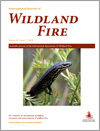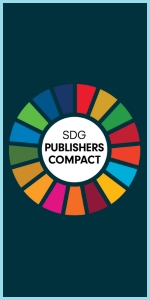International Journal of Wildland Fire
Volume 27
Number 7 2018
The original design and development of the Haines Index are critically examined, followed by consideration of subsequent use and research. There are gaps and inconsistencies in the original development, and reason to question the conclusions drawn by subsequent work.
The NASA Rehabilitation Capability Convergence for Ecosystem Recovery (RECOVER) post-fire decision support system is designed to rapidly assist land managers with developing a rehabilitation plan. Through structured interviews with land managers using RECOVER, this study revealed significant cost and time savings to these agencies. These benefits rest in streamlining data collection and improving cross-organisational communication.
The endangered Blue Mountains water skink Eulamprus leuraensis is restricted to montane peat-swamps. Our surveys show that lizards persisted in swamps that experienced intense fires, but that lizard abundance increased with time since fire. Swamp habitat was dramatically affected by fire, but largely recovered in just over 1 year.
We analysed physicochemical variables and community structure of streams affected by an unprescribed fire in Patagonia. We found significant differences in water temperature and environmental variables linked to watershed erosion, as well as a decreased abundance of sensitive insect groups. The response of aquatic ecosystems to wildfire is an understudied topic in Patagonia; this study represents an important step to understanding this type of disturbance.
Low-intensity surface fires caused a release of elements, which are stored in litterfall and the organic layer. This solute flush from the organic layer lasted for ~3 months and was followed by increased fluxes in the mineral soil horizons. Losses of S were high from the forested soil system.
Through a controlled nursery and combustion laboratory experiment, we show that increased pre-fire water stress decreased post-fire growth in surviving saplings. However, low mortality and high bud density of severely stressed saplings suggest that pre-fire foliar senescence can improve post-fire survival and recovery.




